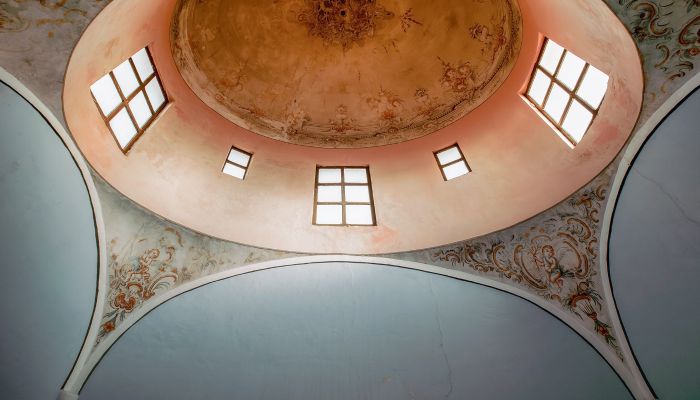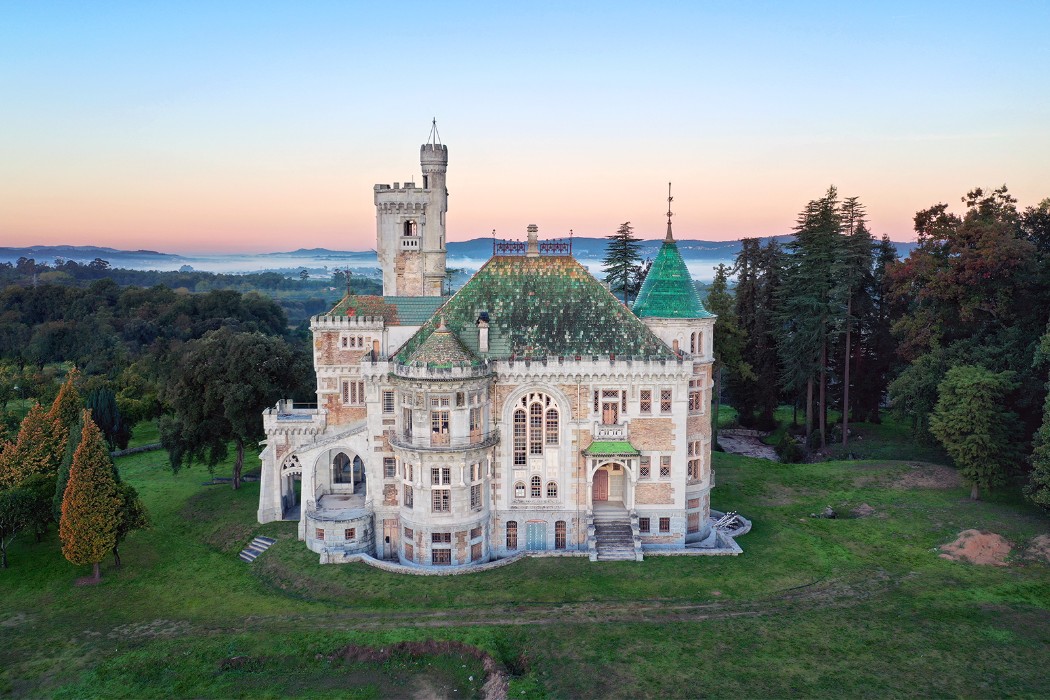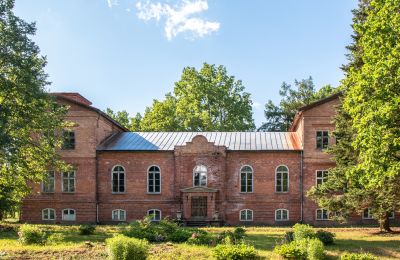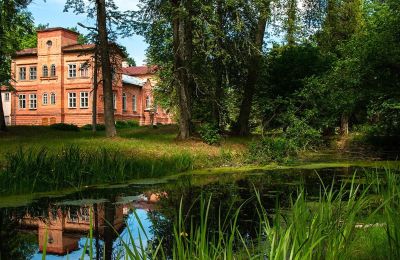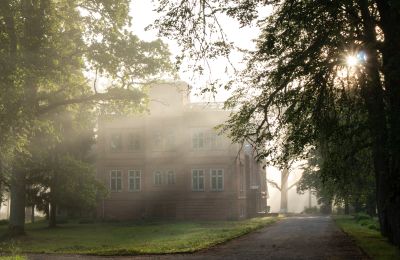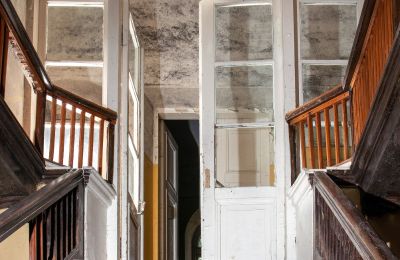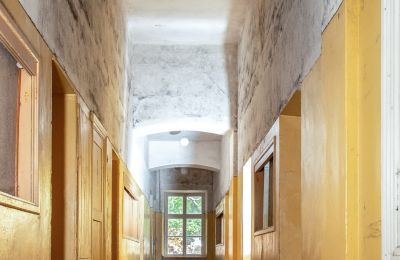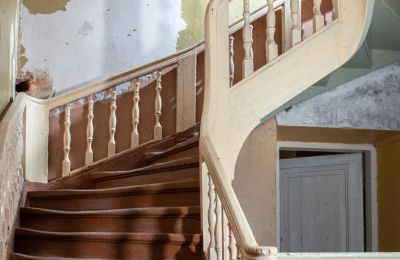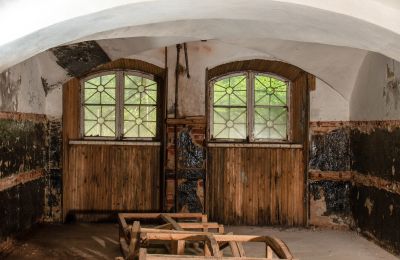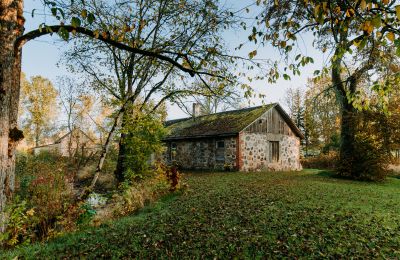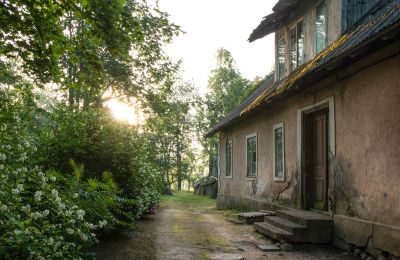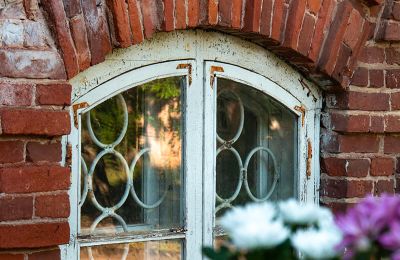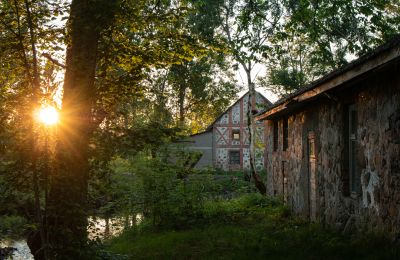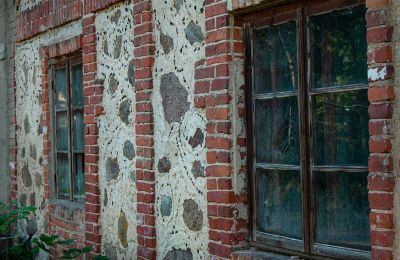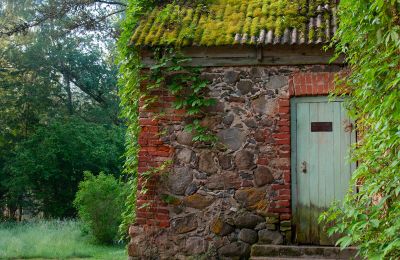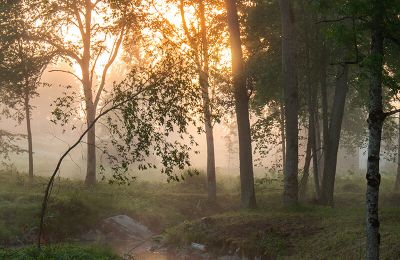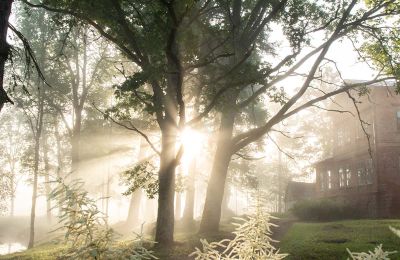Tucked away in the peaceful northern Latvian countryside, this distinguished manor estate offers a unique opportunity to revitalise a historic property with roots reaching back to 1520.
Set on a gentle hill and encircled by woodland, the estate is home to a 150-year-old landscaped park featuring an impressive variety of trees: oak, ash, larch, white spruce, pine, birch, maple, linden and aspen. Whether you're in search of a private countryside escape or a meaningful setting for a new chapter in life, Virkeni Manor radiates tranquillity and timeless character.
The estate spans 27.01 hectares (270,100 m²) and includes six original historic buildings:
- The Manor House (1895) – 1,275 m²
- The Servants’ House (1860) – 462 m²
- The Smithy (1860) – 115 m²
- Outbuilding (1883) – 419 m²
- Large Cattle Barn (1860) – 999 m²
- The Brewhouse (1860) – 252 m²
The Legacy of Virkeni Manor
Former names: Wirken, Wirkken, Würken, Würkenhoff
Established: 1520
16th Century
In 1520, Wolter von Plettenberg, Master of the Livonian Order, granted several land plots to a nobleman named Kuddelen. These were consolidated into the Virkeni estate. The manor was later owned by the influential Baltic German von Dönhoff family. Gerard von Dönhoff was Governor of Tartu in 1598. His sons Caspar and Ernst Magnus held significant positions in the Polish and Livonian territories.
17th Century
Confiscated in 1690 by order of Swedish King Charles XI, the estate was soon restored to its owners. Under Swedish rule, Virkeni passed to the Engelhardt family. Michael von Engelhardt, a cavalry officer and noble of Vidzeme, was granted the manor by King Gustavus Adolphus II for his military service.
18th Century
The Engelhardt family remained stewards of the estate throughout the 18th century, managing it with lasting success.
19th Century
From 1820 onwards, the estate was run by artillery officer and court assessor Anton Johan II von Engelhardt and his wife Sophie. Their son, Baron Karl Gustav Georg von Engelhardt, inherited the estate and expanded the family’s legacy.
Notably, between 1859 and 1861, Jēkabs Zvaigznīte, a central figure in the Neo-Latvian movement, served as tutor to the Engelhardt children. During this period, he published the educational work “Sēta, Daba, Pasaule” and later contributed to Pēterburgas Avīze.
Karl Anton von Engelhardt, the last family heir, constructed the current manor house in the early 1890s. His brother, Hermann von Engelhardt, pursued an artistic career in Germany. From 1895, Karl Anton lived abroad, leasing the estate to his godson Gustav Berkmann. Between 1895 and 1910, part of the manor was sublet to Count Treimanis from St. Petersburg.
20th Century
Following the 1920 land reform, the Latvian government expropriated the 704-hectare estate and assigned it to the State Land Bank. The manor centre became home to the Rūjiena Agricultural School in 1921, later evolving through various educational institutions, including:
- Rūjiena Technical School No. 4 (1955–1963)
- Vocational School No. 10 (1963–1973)
- Technical School No. 5 (1973–1984)
- 68th Vocational Secondary School (1984–1988)
- Virkeni Agricultural School (1988–1999)
- Rūjiena Vocational Gymnasium (1999–2006)
The estate has been under private ownership since 2006.
No Heritage Restrictions – Up to 85% Public Funding Available
Virkeni Manor is not protected under heritage listing, meaning there are no legal restrictions on construction, restoration or usage. Investors benefit from full architectural freedom without the red tape typically associated with protected sites.
At the same time, the estate’s location within a designated development region makes it eligible for substantial public funding: up to 85% of project costs can be covered by EU grants and national support programmes. Latvia also actively welcomes foreign investors interested in restoring and revitalising its rural heritage.

